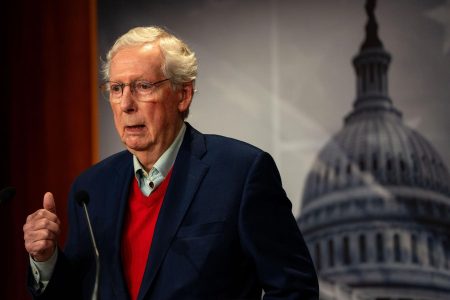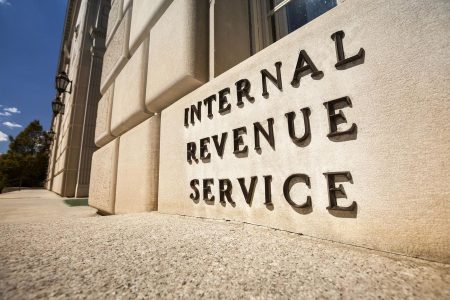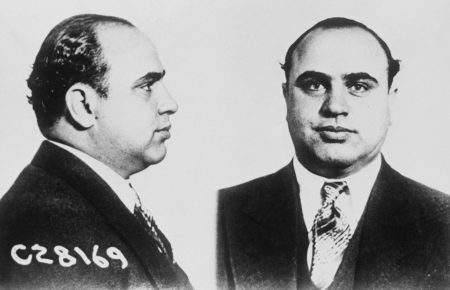The Supreme Court Justices may want to brush up on their tax law this summer. It seems that more tax cases are appearing on the docket these days.
Days after the Supreme Court issued a unanimous ruling in a federal estate tax matter (finding a corporation’s obligation to redeem shares is not necessarily a liability that reduces its value for estate tax purposes), the Justices entertained a new matter, inviting the Solicitor General of the United States to weigh in on a state and local tax matter.
Background
The petitioner, Diane Zilka, lives in Philadelphia, Pennsylvania, and works just down the river in Wilmington, Delaware.
Pennsylvania allows residents who work out of state to claim a credit for income tax payments made to other states like Delaware. In this instance, Pennsylvania imposed a flat tax of 3.07% on Zilka—and Delaware imposed a 5% tax on Zilka. The Keystone State allowed Zilka to apply her Delaware tax as a credit against her Pennsylvania tax, resulting in a difference of 1.93% (more tax paid to Delaware).
Similarly, Philadelphia also provides residents a credit to offset income tax payments to other cities like Wilmington. In this instance, Philadelphia allowed Zilka a credit for the amount of Wilmington tax paid (1.25%) to offset her Philadelphia tax (3.92%). Since Zilka was still running a deficit, she also attempted to claim a credit against her Philadelphia tax for the 1.93% unused credit that could not be applied at the state level.
Philadelphia allowed the credit for the Wilmington tax (1.25%) against her Philadelphia tax bill but didn’t allow the unused credit from Delaware (1.93%) as an offset against her Philadelphia taxes.
Zilka appealed the decision to the Tax Review Board of Philadelphia. The Tax Review Board denied the appeal, and the matter proceeded to court (initially, the Court of Common Pleas and then onto the Commonwealth Court of Pennsylvania), which both agreed with Philadelphia. The matter then continued to the Pennsylvania Supreme Court, which found that Philadelphia was not required to provide Zilka with a further credit to offset the remainder of her Delaware income tax liability.
Not satisfied, Zilka wants an answer from the country’s highest court and has filed a petition to be heard.
Question
The question that has been raised at the Supreme Court is whether the Commerce Clause requires states to consider a taxpayer’s burden in light of the state tax scheme as a whole when crediting a taxpayer’s out-of-state tax liability or permits states to credit out-of-state state and local tax liabilities as discrete tax burdens, as the Pennsylvania Supreme Court has previously held.
Arguments
Zilka nods to the U.S. Supreme Court decision in Comptroller v. Wynne (2015), which held that Maryland’s tax scheme was unconstitutional because it didn’t offer credit to its residents for taxes paid in other states. In Wynne, a married couple (the Wynnes) reported taxable net income of approximately $2.7 million to the State of Maryland. More than half of that amount represented a share of earnings in an S corporation with operations in several states. The Wynnes claimed credit on their Maryland tax returns for taxes paid to 39 other states. The State of Maryland denied the credits and issued a notice of deficiency. The Wynnes appealed, and the assessment was affirmed, meaning they were stuck paying the tax. The matter eventually made its way to the Supreme Court, which found that “Maryland’s personal income tax scheme violates the dormant Commerce Clause.” The dormant Commerce Clause showed up in principle in the 19th century and has come to mean that states cannot discriminate against interstate commerce, and they cannot unduly burden interstate commerce, even if there’s not any specific federal legislation related to commerce.
Zilka argued that the holding in Wynne means that states must offer full credit, including state and local taxes, on interstate income taxes to avoid an unconstitutional tax scheme. Pennsylvania, however, only offered a credit against the Delaware taxes, while Philadelphia only offered a credit against Wilmington’s taxes—it was not aggregated. That, Zilka says, resulted in a higher tax simply because she worked out of state, which she argues is a dormant Commerce Clause violation.
Stewart Weintraub, a shareholder at Chamberlain Hrdlicka, representing Zilka in the matter, says the argument “simply boils down to [Zilka’s] same income being subjected to tax by four different taxing authorities.” And, Weintraub says, when you do the math, “more than 100% of her income is taxed.”
The decision could have consequences beyond the City of Brotherly Love. Weintraub notes that any city with a local income tax that borders another state could be impacted—as could other commuters. And, he notes, that there could be sales tax implications, as well.
In contrast, Philadelphia claims it charges the same tax rate on all residents, so its tax scheme cannot be considered discriminatory. The City also argues that the facts of the relevant tax in Wynne are distinguishable from Philadelphia’s wage tax. Finally, Philadelphia agrees that while Zilka has a higher tax bill, it’s not because of any discrimination against interstate commerce but because of “the interaction of two parallel and nondiscriminatory income tax schemes set at different levels.”
The City of Philadelphia declined to comment for this article, citing the ongoing litigation.
Supreme Court
Zilka filed a petition for certiorari (Latin for a written order “to be more fully informed”) in the U.S. Supreme Court on February 20, 2024. Parties do that when seeking a review of the case.
In its petition, Zilka argues that the Supreme Court needs to hear the case because “Pennsylvania’s decision to treat Philadelphia as a separate sovereign from Pennsylvania would create a new loophole around the Constitution at odds with the Wynne decision, the law of nearly every other state, and because what matters is how taxes practically operate, not labels used by government officials.” She argues that the prohibition against discriminatory taxes that burden interstate commerce covers local taxes, too.
(Amicus briefs have been filed in support of Zilka by the National Taxpayers Union Foundation and the American College of Tax Counsel.)
In its reply brief, Philadelphia argues that the Pennsylvania Supreme Court ruled correctly on the matter, and the question raised by Zilka is “neither recurring nor important.” And the City claims that Pennsylvania’s highest court disagreed that Wynne required a different result, writing, “In our view, [Wynne’s] logic and characterization of the county tax as a state tax based on the circumstances underlying its creation and the manner of its collection via the state’s comptroller reveal that state and local taxes need not be aggregated for purposes of a dormant Commerce Clause analysis.”
The U.S. Supreme Court hasn’t yet agreed to hear the matter. On June 10, 2024, the Court invited the Solicitor General to file a brief expressing the views of the United States.
If the U.S. Supreme Court decides to hear the matter, it’s called a grant of certiorari (by practice, at least four justices must vote to hear the case to be granted cert). If the Court turns the petition down, it’s referred to as certiorari denied. A denial does not necessarily mean that the Court agrees with the appellate court’s findings—it simply means that the appellate decision will stand.
Assuming that certiorari is granted, arguments in the matter won’t be scheduled until fall of 2024 at the earliest.
The case is Zilka v. Tax Review Board City of Philadelphia.
Read the full article here
















